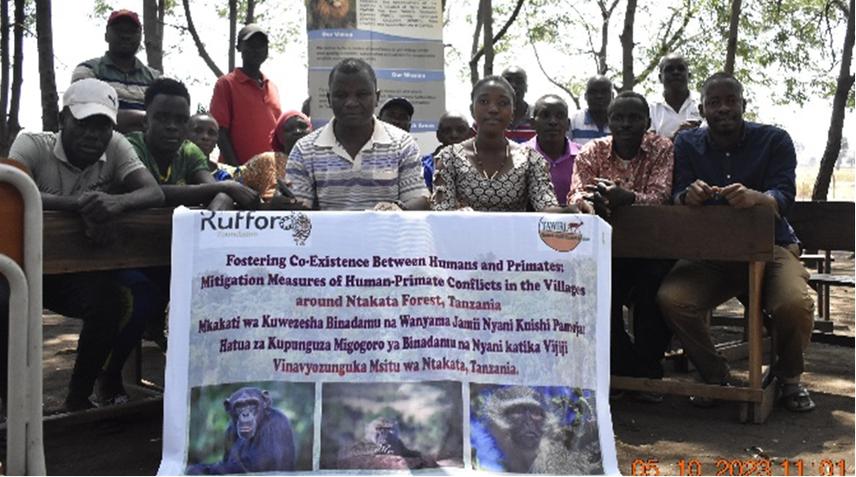Butati Nyundo
Other projects
14 May 2019
Community-Based Study to Enhance Conservation of Primates in Ntakata Forest, Western Tanzania
17 May 2024
Promoting Co-existence Between Humans and Primates in the Villages Around Ntakata Forest: Supporting Local Communities to Adopt Conflict Mitigation Strategies
Human-wildlife conflicts have emerged as a subject of concern in Africa, however, has mostly focused on elephants, carnivores (e.g., lions), hippopotamus, and crocodiles. Yet, conflicts between human and other wildlife species occur. The conflicts are largely driven by the increasing human populations and encroachment on wildlife habitats. As human populations continue to grow, and people continue encroaching on natural habitats, human-wildlife interactions and conflicts will become widespread.

Farmers after being taught on various aspects of wildlife conservation, sustainable utilization of natural resources, the possible dangers of consuming bushmeat, sustanable farming and various approaches to be adopted to mitigate human-primate conflicts.
Over the recent years, there has been a rising level of interaction between humans and primates, resulting into human-primate conflicts-HPCs (Hockings 2016). Many primate species inhabit human-impacted landscapes (Hockings et al. 2015), leading to increased human-primate interactions and conflicts. Western Tanzania is no exception. The region experiences human pressures resulting in forest loss and HPCs. Human-primate conflicts have posed negative effects to community livelihoods and primate conservation.
Human-primate conflicts occur when primate impact negatively on humans or when humans negatively affect primates. From the previous project (27618-1) it was found that HPCs is occurring in the villages around Ntakata forest where humans are materially and economically impacted through crop damage, and primates affected through habitat loss and killing. The conflict has posed a serious problem to sustainable wildlife conservation in Ntakata forest as the local communities have built negative attitude towards conservation efforts. Therefore, under this project we aim to prioritize and strengthen human-primate conflict mitigation training programs to reduce damage caused by primates and enable people to live alongside primates with reduced conflict. Moreover, we aim to inform behavior change among the local communities in the villages around Ntakata forest and advise them on the best HPCs mitigation measures.
Header: Secondary school students as young generations were also involved in the project.